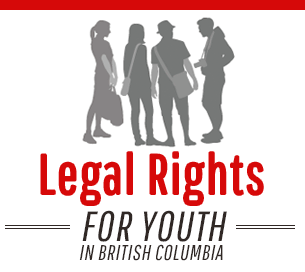The Tenant Survival Guide, published by the Tenant Resources & Advisory Centre (TRAC) contains helpful information about being a tenant. You may also want to visit Renting It Right for a free online video course on your rental rights.
In addition, the BC government publishes a range of information for tenants to understand their rights and responsibilities during a tenancy.

Paying the rent
When you rent a house or apartment, you usually pay rent to the landlord once a month. Make sure that you have proof that you paid the rent, such as a receipt from the landlord or a cancelled cheque from your bank or credit union. Keep this proof in case there is a dispute about it later.
If your landlord wants to increase your rent, he or she must follow certain rules. For example, the landlord cannot increase the rent if you have been in the place for less than 12 months. Landlords must give tenants three months’ notice if they increase the rent. This means the landlord must tell you in writing three months before you start to pay the higher rent about the rent increase. The month you receive the notice doesn’t count, even if you receive notice on the first of the month. The landlord must use a special form called Notice of Rent Increase.
The landlord can only increase the rent once a year. In most cases, the landlord can only increase the rent according to a percentage set by the government. This percentage may change from year to year.
Getting repairs made
The landlord must put up a sign that says who you should to call if there is an emergency. If you have problems with the electricity, the toilet doesn’t work or there is no hot water, for example, the landlord must fix it. The law says a landlord must make such repairs. Ask your landlord to make the repairs. It is a good idea to do this in writing and keep a copy of the letter. If the landlord doesn’t make the repairs, contact the Residential Tenancy Branch or the Tenant Resource & Advisory Centre.
If your landlord doesn’t fix a problem in your apartment, such as a leaking pipe, you can phone city hall and tell the people there about the problem. An inspector may be able to go to your apartment and look at the problem. The inspection is free. The inspector will tell the landlord to fix the problem.
Paying for damage
When a tenant or tenant’s visitors damage a rented house or apartment, the tenant must pay for the repair. The landlord does not have to pay for it.
Letting the landlord in
Landlords can ask to see the rented house or apartment, and may even want to come once a month. Landlords must give a letter to the tenant at least 24 hours before they come. The letter must state when the landlord is coming at a time between 8 a.m. and 9 p.m. and why he or she is coming. An exception to this rule is in cases of emergency. The landlord can come in without permission when there is, for example, a fire or a broken water pipe.
Resolving Disputes
The Residential Tenancy Branch (RTB) can help you resolve your dispute with the landlord. The RTB website has information about how to resolve disputes on your own, or how to apply for dispute resolution; however, there will be a fee if you apply to have the dispute resolved through the Resolution Tenancy Branch.
The RTB recommends that tenants and landlord try to communicate to work out their differences and come to an agreement. Discussions about the tenancy agreement and issues that come up will ensure understanding and help build a good landlord and tenant relationship.
They recommend these tips for the best outcome:
- Let the other party know what the problem is
- Have a goal in mind that will be a good solution for both parties
- Meet face-to-face in a place where you won’t be interrupted and you will both feel safe
- Discuss the issue thoroughly
- Be respectful of the other party and their point of view
- Keep a record of your conversations: who you talked to, when, where and what was said
- Follow up with the other party in writing
If the situation isn’t urgent and you can’t agree, it might be helpful to take a break for a day or two, or get someone to help mediate, like a mutual friend or an advocate.



